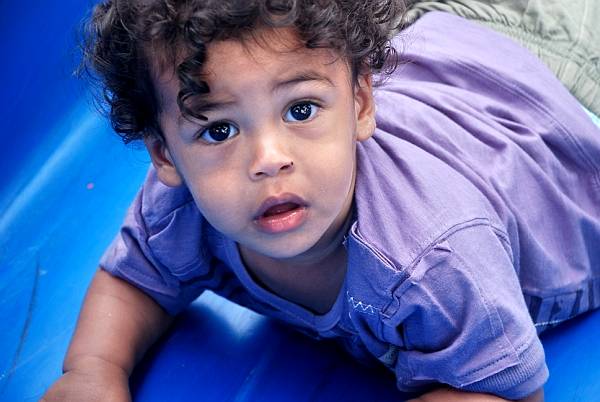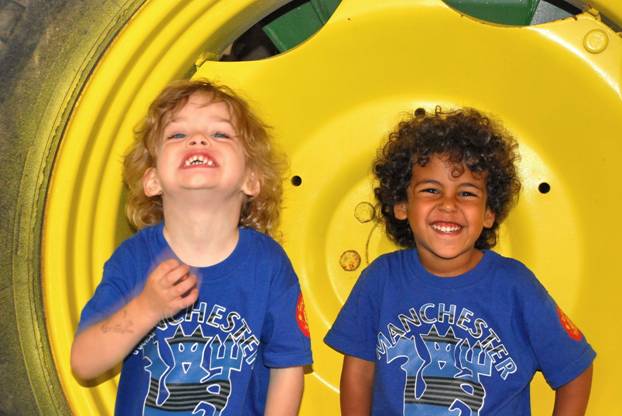
In Kids under Stress: Diagnose Stress Symptoms without Psychiatrists, I covered easy ways to diagnose symptoms of stress in children, without having to go to psychiatrists that are very likely give your child medication that might prevent them from developing coping mechanisms and might damage them for life.
Once you have confirmed the stress, you will want to know how to deal with stress and start helping your child. So here is a list of easy solutions you can use at home to help your child cope. No Psychiatrists. No Medication. These methods take the same time to work as medication does, are just as effective and have no side effects, so they are much better in the long run.
How to deal with kids’ stress easily on your own
- Give your child some time off. Much of the stress is associated with not having enough time to rejuvenate. Kids move from one activity to another, parents are drivers and the car is another part of the house, going from one place to another. Schedule time off in every child’s timetable for doing nothing at all. We all have a nothing box and it is perfectly OK to use it from time to time. We do not have to be productive, achieve, learn and be active 100% of the time. It is exhausting and triggers stress. Help your child unwind and relax regularly.
- Ease the expectations! Your children seek your approval. Your approval is like a drug for them and you are the drug dealer. When you have high expectations, their feeling of inadequacy increases and they are stressed. This feeling is debilitating. I see many clients whose main stress in life was formed by parents with high expectations and they carry this stress into their adult life, 20, 30 and even 40 years later.
- Spend time with your child every day! You are a pillar of strength and inspiration for your children. If you don’t think so, ask them… They draw energy from your love, so make sure you give them a dose of your love every day. No matter what happens, dedicate some time to them every day. If you are away, talk to them on the phone every day. It is a reminder that you are always there for them. It is not just about the quantity of the time, but the quality of it, so make sure your time together is fun and comforting.
- Work on your child’s social skills and encourage social interactions. When you notice something has changed in the child’s social setting, address it immediately. Have a party, invite friends for a play day, dinner or outing with their families and be there to support your child. Don’t just throw them in there and force them to “swim or sink”. Be there for them. Do it as long as you need until they feel comfortable again.
- Develop your child’s organizational skills. Stress often comes from a feeling of overwhelm and being disorganized increases that feeling. Having routines, rules and systems, and keeping them is healthy for everyone, but more so for some children. Just be careful not to stick to them so religiously that they produce more anxiety than solve problems!
- Encourage expressions of feelings, both good and not-so-good, and always welcome your kids’ feelings so they won’t be afraid to express discomfort. If you are not the person they can come to for support, they will bottle up those feeling and keep them brewing inside. Expression is the best way to manage stress, so be the person your children trust and share feelings with.

- Teach your kids to name their feeling. The first level of emotional intelligence is to recognize our feelings, so teach your kids the right vocabulary to recognize what is happening inside them. Ask, “What is the feeing you have inside now?” Simply naming it can do miracles.
- Teach your kids to rate their feeling. Rating is a very useful technique to manage feelings. After the child names the feeling, e.g. “I am angry”, ask, “From 1-10, 10 being absolutely starving, how angry are you?” At first, children might say “twenty” on a scale from 1-10, but over time, they will develop a scale. And when they compare anger 10 to anger 2, the road to overcoming their feeling of anger it is easier.
- Help your child find and outlet for self-expression. Any form of art, sport, music is a fantastic outlet for self-expression. Many people report that doing any art form allows them to manage their feelings better. Help your child find a hobby, as this will become their island of peace when things are tough.
- Stick to family dinners and use them as a tool for developing kids’ expression and coping mechanisms. Family dinners are the best educational times of every family, along with family travel and outings. They are an opportunities to discuss family topics, allow people to express themselves and share with them coping strategies in a relaxed and supportive atmosphere. Since my daughter was 3 years old (she is 26 now), I have been encouraging her to share great things that happened to her during the day at family dinners, so it is possible to do it at any age.
- Teach your kids relaxation techniques. Taking a deep breath, using NLP anchors to calm down, listening to music and meditating are only some of the techniques that can be useful to everyone regardless of age. I taught a group of 3-year-olds to meditate by just counting from 1 to 3 over and over again, so everyone can learn to meditate.
- Most importantly, learn how to deal with stress in your own life! Kids mirror their parents’ feelings and very often, their feeling of stress is mostly a projection of their parents’ stress. They just too young to notice it is not their own feeling and they carry it to adulthood without really knowing its source. Many of my clients express this feeling of anxiety from childhood with no apparent reason for feeling like that.
Unfortunately, I know of many children whose parents were too overwhelmed and saw the psychiatrist as an easy solution, which backfired. Even using anti-depressants is not a complete solution. Without developing coping mechanisms, it only creates dependency.
Do yourself and your child a favor. Keep them as far away from medication, because stress is here to stay, it is likely to increase, and those who will succeed in life are not those who are prescribed medication and pray that their child will grow out of it, but those who face their challenges now, learn how to deal with stress and teach their kids how to cope.
It is not what happens to you that counts, but what you do about it.
Remember, family matters and happiness is a choice!
Ronit












